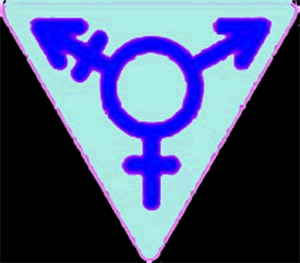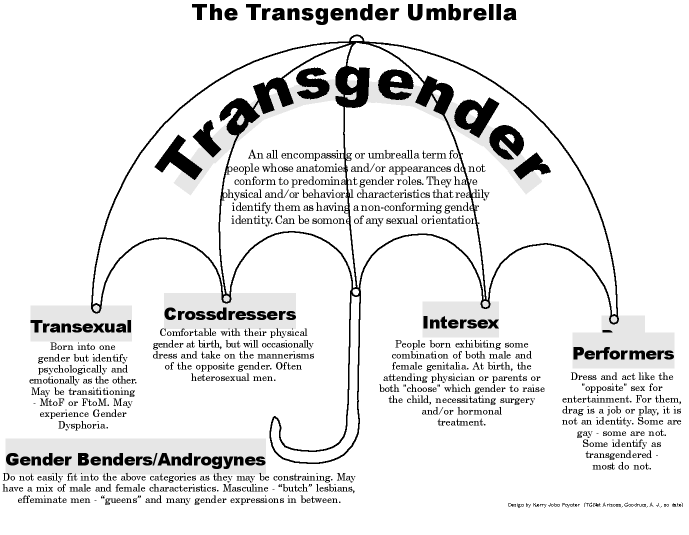
Equal Rights and Opportunity Sexuality in the Family and Personal Life: Lesbian Feminism, Single Motherhood by Choice, Transgendered People, and Reproductive Rights
created by:
Annie ChoiChristine Wang
::Table of Contents::
Into the Lives of Transgendered People
The freedom to express one’s sexual orientation and gender identity in the United States is still a fundamental concern for the LBGT community, particularly for transgender people, whose legal status is still uncertain. Although transgender people have gained rights to equal education and protection from hate crimes, transgender individuals are still subject to many types of political discrimination—in the areas of employment, disability, and marriage—in many parts across the country. Furthermore, while the transgender community has gained visibility in the public eye, the percentage of hate crimes motivated by sexual orientation bias has also increased over the past decade.(1)
The amount of violence and discrimination that transgender people face for their sexual orientation and gender identity expression persists in daily life. Since 1970, over two hundred thirty victims have been murdered by transgender prejudice. Much of the violence spurred from transgender hate is overlooked by the mass media, and it is crucial for us to learn about transgender history, struggles, achievements, and future goals.
The number of transgender people currently living in the United States is uncertain. Transgender individuals have existed since earlier colonialism times. In 1629, a Virginian magistrate granted Thomas/Thomasine Hall, an intersex individual, the right to dress in both feminine and masculine gender clothing. Slowly but surely, transgender people have reached significant milestones since the colonial era. One achievements is the emergence of a unified transgender community.
Many transgender activist organization and support groups have emerged during the past decade. The basic human rights for transgender individuals are stipulated in The International Bill of Gender Rights (IBGR):
- the right for individuals to determine, define, and express their own gender identity
- the right to equal employment opportunities and just compensation
- the right to alter one’s own body and have access to medical care
- the right to reject psychiatric diagnosis
- the right to free sexual expression
- the right to enter into marital contracts and exercise parent duties
Transgender activists are optimistic that these fundamental human rights will be extended to all types of people in the future. Achieving equality will be the start of a cultural and political change in the economy, as well as a step towards the end of transgender prejudice.
What does transgender mean?
Transgender is the umbrella term used to describe a range of identities, including cross-dressers, transsexuals, intersex individuals, genderqueer, and gender benders. Anyone who is gender variant or gender nonconformist would be considered part of the transgender community.

Resources
(1) "Hate Crime Statistics 2005" Union Crime Reporting Program 2006. U.S. Department of Justice Federal Bureau of Investigation. http://www.fbi.gov/ucr/hc2005/